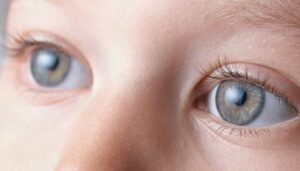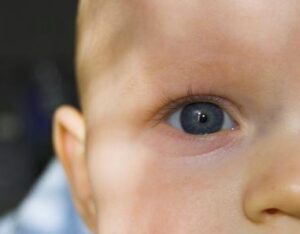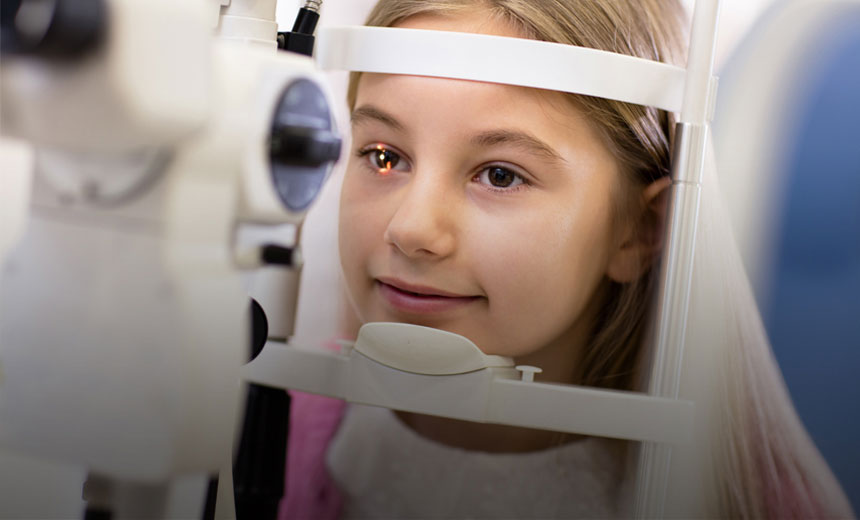Did you know that cataracts are the leading cause of blindness in children? In fact, one out of every three cases of blindness in children is due to cataracts. This is why it is so important for parents to be aware of the signs and symptoms of juvenile cataracts and seek treatment as soon as possible. In this blog post, we will discuss the causes and symptoms of juvenile cataracts, as well as the treatment options available.
Contents
What Are Juvenile Cataracts?
 Juvenile cataracts, also known as congenital cataracts, are vision disorders in which the lens of the eye becomes clouded and opaque. This type of cataract is present at birth or develops shortly after birth and can affect either one or both eyes. Juvenile cataracts impair visual acuity and cause sensitivity to light.
Juvenile cataracts, also known as congenital cataracts, are vision disorders in which the lens of the eye becomes clouded and opaque. This type of cataract is present at birth or develops shortly after birth and can affect either one or both eyes. Juvenile cataracts impair visual acuity and cause sensitivity to light.
It is often a condition that is inherited, however, there are other factors involved in the development of juvenile cataracts such as infection, medical conditions like diabetes or high blood pressure, and certain medications. Children born with these cataracts may experience vision problems within the first few months or years of life.
So, if you are concerned that your child may have juvenile cataracts, it is important to get them examined by an ophthalmologist as soon as possible. Early detection and prompt treatment are key when it comes to managing the condition.
What Are Some Signs And Symptoms?
It might be difficult to detect juvenile cataracts in your pet. It is usually characterized by a white or bluish-grey haze that appears in the lens of the eye, typically occurring between 3-7 months of age.
Juvenile cataract symptoms may include:
- Cloudiness or opacities in the pupil
- Excessive tearing
- Squinting and/or other changes in your pet’s behavior
- Sensitivity to light
These are some of the most common signs that could indicate a juvenile cataract. If you notice any of these symptoms in your pet, it is important to contact your vet immediately for an assessment.
How Is It Diagnosed?
The diagnosis of juvenile cataracts is usually made during a routine eye exam. There are various tests that can help diagnose juvenile cataracts. The doctor may use a slit lamp, which is an instrument used to examine the eye for cataracts. Other imaging tests, such as ultrasound or CT scans, may also be used to confirm the diagnosis of juvenile cataracts.
These tests will help the doctor determine the size, location, and type of cataract present. An accurate diagnosis can help the doctor recommend the most appropriate treatment plan.
Therefore, you should not ignore any changes in your vision, even if it is just a little blurry. It is important to make sure you get regular eye exams so that any cataracts can be detected and diagnosed early.
What Is The Youngest Age For Cataract Surgery?
Cataract surgery is typically recommended for children between the ages of one and three years old. For younger children, early detection and treatment are essential since infantile cataracts can quickly cause vision loss. Diagnosis during infancy is based on careful observation of changes in coloration or size of the pupil, as well as a refraction test.
It is important to note that cataract surgery can have different risks and success rates depending on the age of the patient. In children, the lens capsules are much thinner than those of adults which can make extraction difficult.
Additionally, babies younger than one-year-old may not be able to cooperate with all instructions during surgery. But this can be mitigated by using anesthesia and special techniques to reduce the stress of the procedure.
Risks Associated With Juvenile Cataract Surgery
 While most cataract surgeries go smoothly, there are risks associated with the procedure. These include:
While most cataract surgeries go smoothly, there are risks associated with the procedure. These include:
- Vision loss due to retinal detachment or infection
- Posterior capsular rupture
- Intraocular inflammation
- Glare, halos, and double vision
- Increased intraocular pressure that can cause glaucoma
While these risks are rare, it is important to be aware of them before undergoing surgery. Your doctor will discuss the risks with you in order to determine if the procedure is the right choice for you.
Are Juvenile Cataracts Hereditary?
Yes, juvenile cataracts are often hereditary. They can occur due to mutations in certain genes that cause the lens of the eye to become cloudy. This type of cataract is found more commonly in children and younger adults, and it can affect both eyes or just one.
It is important for parents to have their child’s eyes checked regularly for any changes in vision or signs of cataracts. Early detection and treatment are important to help slow the progression of the condition, prevent further vision loss, and maintain visual acuity.
Can Early Cataracts Be Cured?
The treatment for early cataracts in children depends on the severity of the condition. In some cases, glasses or contact lenses may be necessary to correct vision problems caused by mild cataracts.
Surgery can also help with more serious cases, although this is only recommended when absolutely necessary due to the risks involved. During surgery, an artificial lens would be used to replace the cloudy one in the eye. After surgery, most patients experience improved vision.
In some cases, juvenile cataracts may not require any treatment if they cause little disruption to vision. In such cases, regular monitoring is necessary to ensure that the condition does not worsen over time. It’s important for children with early cataracts to maintain regular eye exams and to follow their doctor’s advice to protect their vision.
Overall, the earlier you recognize juvenile cataracts, then it is easier to cure or reduce the problem. Prompt treatment is important to help prevent vision loss or other complications in the future.
How Can You Prevent It?
The prevention of juvenile cataracts usually to focus on maintaining the overall health of your eyes. There are various tips to help reduce the risk of developing this condition.
- Wear sunglasses: Wearing sunglasses helps protect your eyes from dangerous UV rays and reduces the risk of damage that can lead to cataracts. Make sure to choose a pair with 100% UVA and UVB protection for the best protection.
- Eat healthy foods: Eating a balanced diet rich in vitamins and minerals can help keep your eyes healthy. It is important to consume foods such as leafy greens, oranges, nuts, and fish for the best nutrition for your eyes.
- Exercise regularly: Regular exercise can help reduce stress and improve circulation which can be beneficial to eye health. Aim for at least 30 minutes of exercise per day.
- Get regular check-ups: Scheduling regular eye exams can help detect any early signs of cataracts before they become serious. This can make it easier to start treatment as soon as possible if the condition is detected.
Overall, these things can help lower the risk of developing juvenile cataracts. It is important to take care of your eyes and see an eye doctor regularly for proper monitoring and evaluation. Early detection and treatment can help prevent further damage and improve overall eye health.
Just be sure to follow your doctor’s advice and make lifestyle changes if needed to keep your eyes healthy.
Conclusion
In conclusion, juvenile cataracts are often described as one of the most serious causes of childhood vision loss. Early diagnosis and treatment are critical for preventing blindness in affected children. Children with cataracts should be regularly monitored by a qualified eye doctor to ensure that any changes in sight can be immediately detected and treated.
Parents should also discuss their child’s specific risks, symptoms, and treatment options with the doctor as soon as possible. By taking the appropriate steps and following a doctor’s orders, children can avoid long-term vision problems due to this type of cataract.
For more information and guidance, please contact Mantra Care. At MantraCare we have a team of experienced eye surgeons, who will be happy to answer any questions on cataract surgery. Call us at +91-9711116605 for any inquiries.
